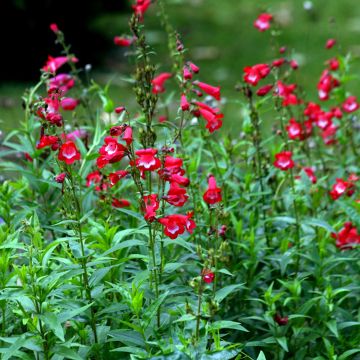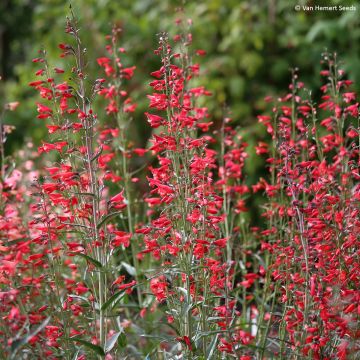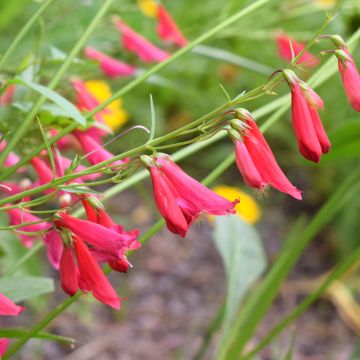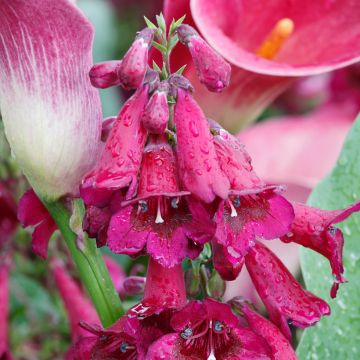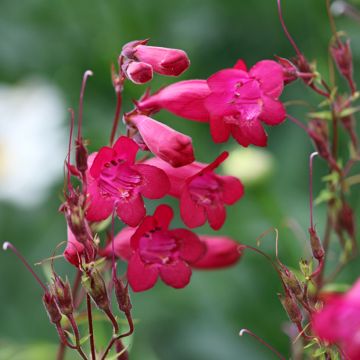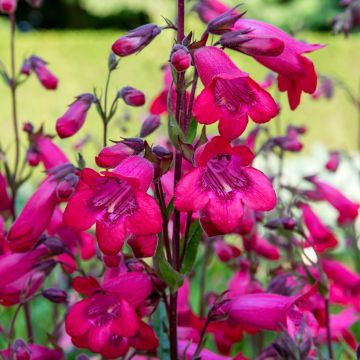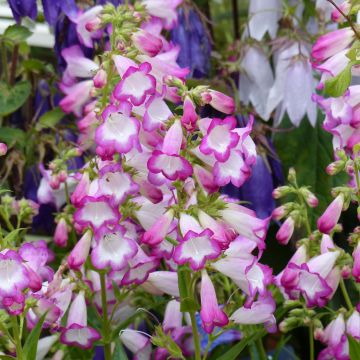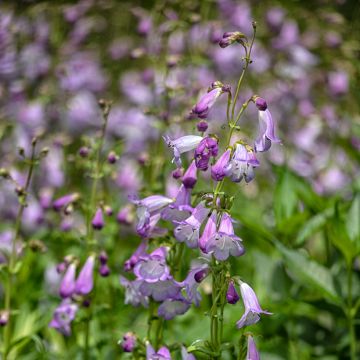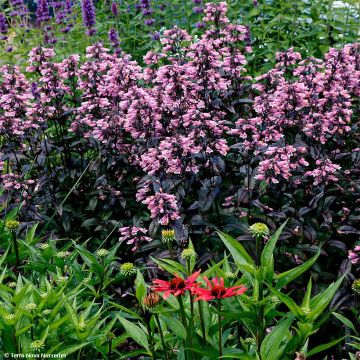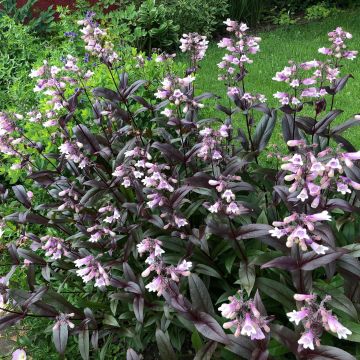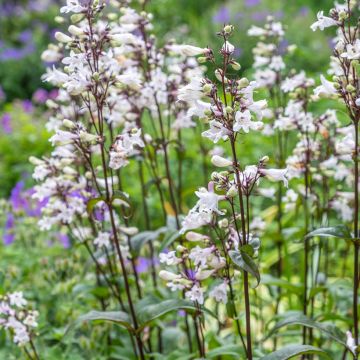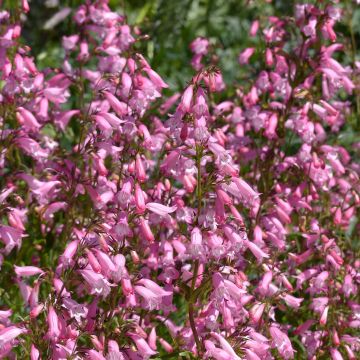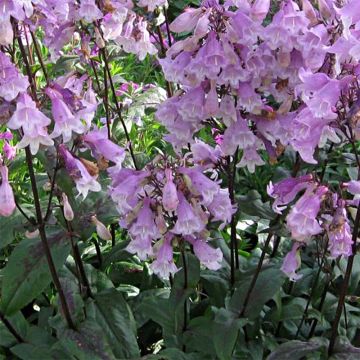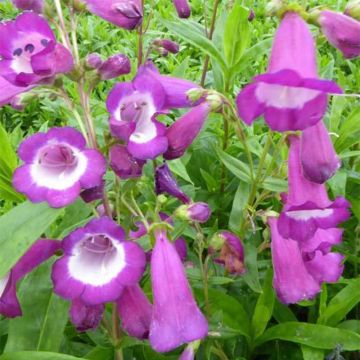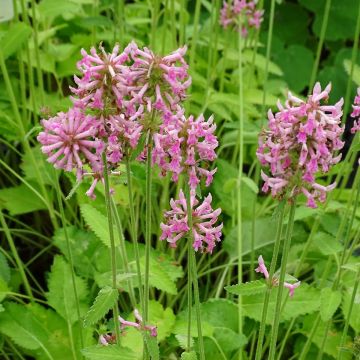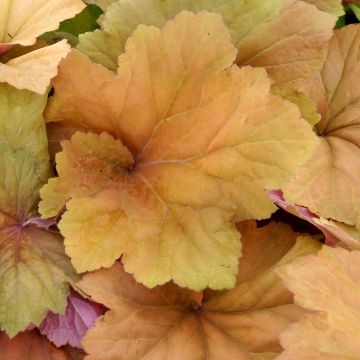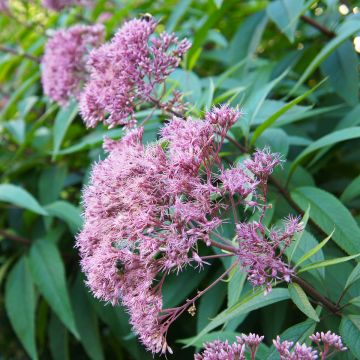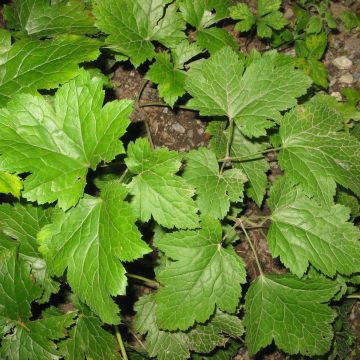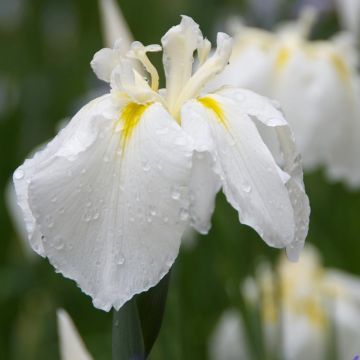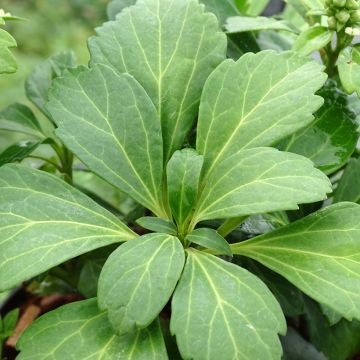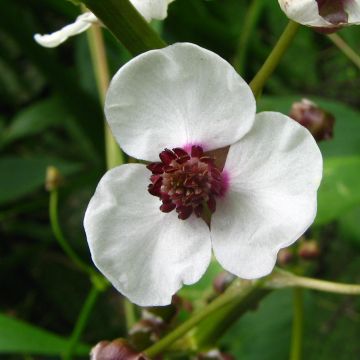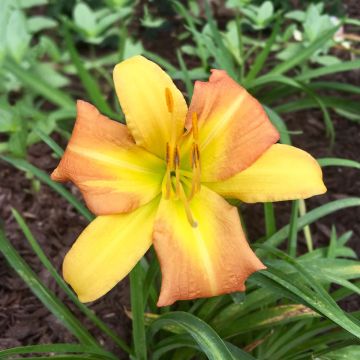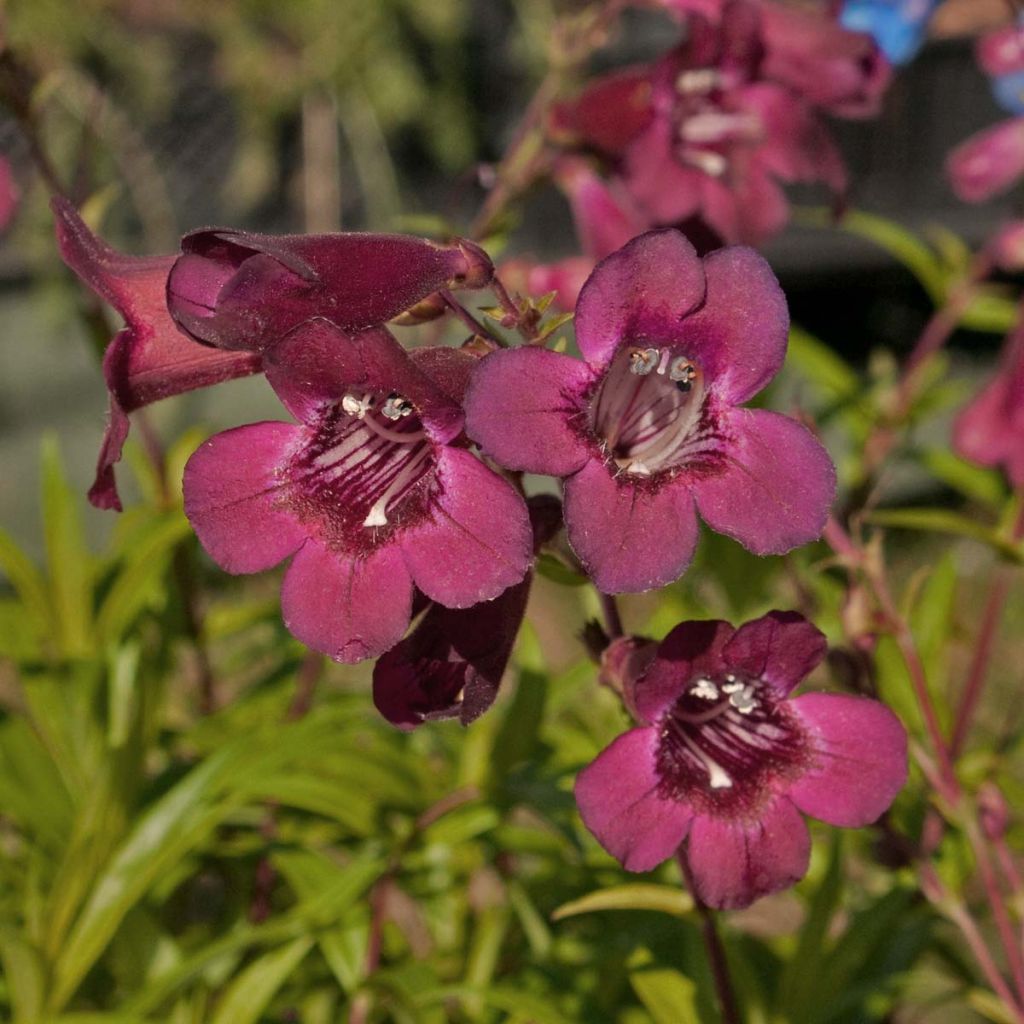

Penstemon Blackbird - Beardtongue
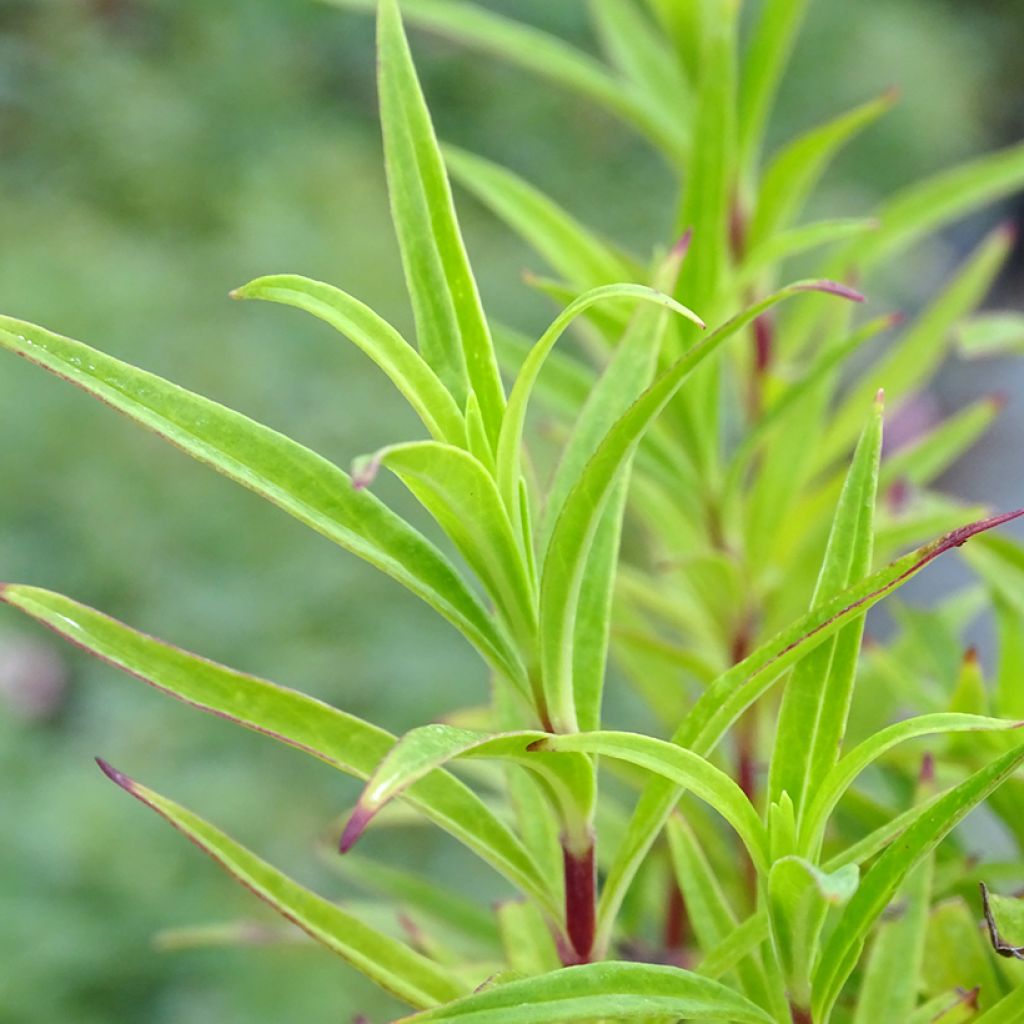

Penstemon Blackbird - Beardtongue
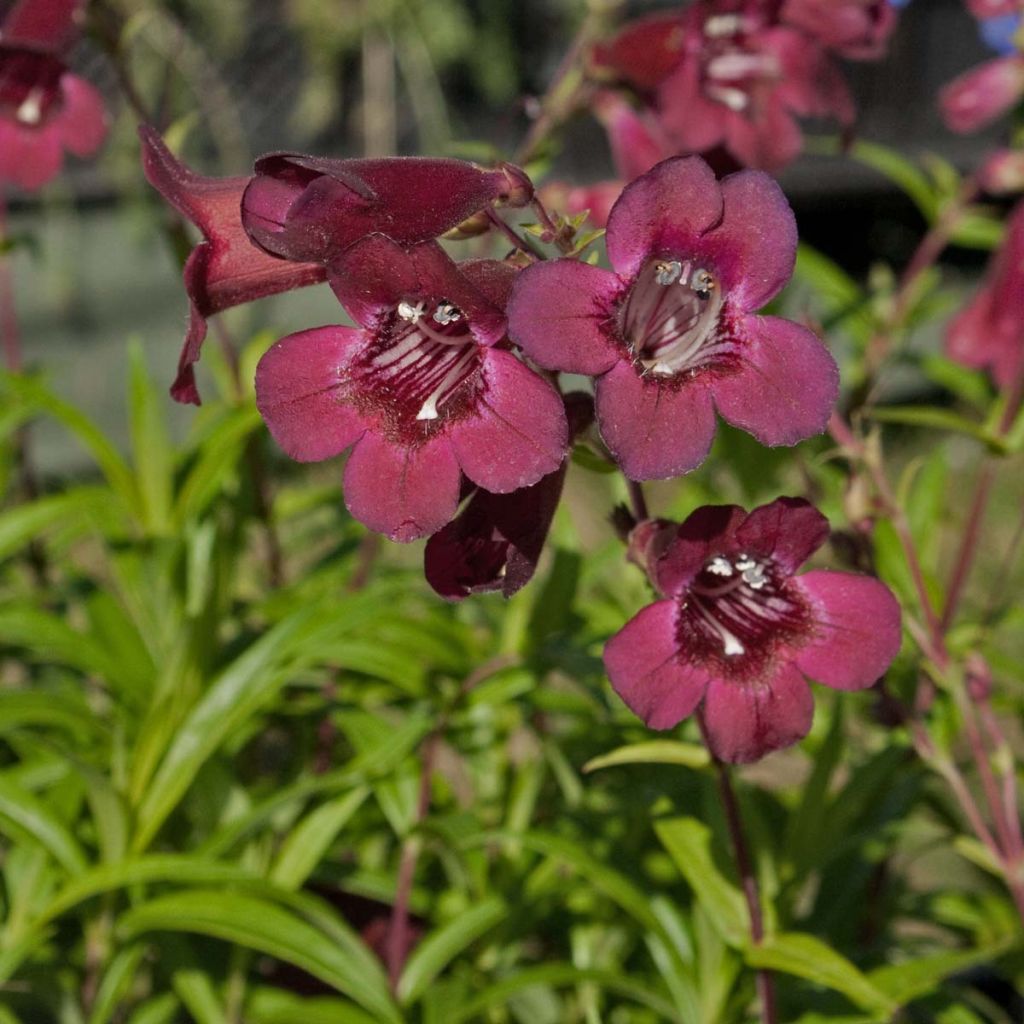

Penstemon Blackbird - Beardtongue
Penstemon Blackbird - Beardtongue
Penstemon Blackbird
Bellflower Beardtongue, Canterbury Bells Penstemon
Why not try an alternative variety in stock?
View all →This item cannot be shipped to the selected country
Delivery charge from €5.90
Delivery charge from €5.90
More information
Schedule delivery date,
and select date in basket
This plant carries a 12 months recovery warranty
More information
We guarantee the quality of our plants for a full growing cycle, and will replace at our expense any plant that fails to recover under normal climatic and planting conditions.
From €5.90 for pickup delivery and €6.90 for home delivery
Express home delivery from €8.90.
From €5.90 for pickup delivery and €6.90 for home delivery
Express home delivery from €8.90.
Does this plant fit my garden?
Set up your Plantfit profile →
Description
The Penstemon 'Blackbird' is an exceptional perennial, with the spectacular colour of its graceful trumpet-shaped flowers, very dark burgundy red, with a slightly white throat! It will bring grace, lightness, and sumptuous colours to your sunny flowerbeds!
The Penstemons, also known as Beardtongues, belong to the family of Scrophulariaceae (Plantaginaceae recently) and are native to Central and North America. Despite their relative lack of hardiness, they are highly floriferous perennial plants, essential in flowery gardens with a country look. Throughout the summer until late autumn, their beautifully coloured flowers bloom continuously in trumpet-shaped form, resembling those of foxgloves or snapdragons.
The Blackbird Penstemon, a semi-hardy ornamental perennial, forms a compact and upright bush, branched from the base, measuring 60 to 70 cm (24 to 28in), with a spread of about 50 cm (20in). From this tuft, upright stems with lanceolate leaves emerge, carrying long clusters of tubular flowers, widely open with unevenly lobed lips, from June to October. Extremely floriferous, it displays its splendid floral spikes, with garnet flowers slightly speckled with white above a light green evergreen foliage, revealing a superb contrast of colours. This long and abundant flowering can sometimes make the stems bend under the weight of the flowers. It is advisable to pinch the branches during growth to overcome this inconvenience. This will result in shorter, straighter floral stems with slightly delayed flowering.
Beardtongues prefer fertile, well-drained, and relatively dry soils in sunny locations. They are hardy enough to excel in flowery gardens with a wild look, where their opulent and beautifully coloured flowers will work wonders! This Penstemon Blackbird is perfect in flower beds, mixed borders, flower beds, rockeries, or pots. Its flowers will also make beautiful bouquets. Harmoniously integrating into summer flower beds or rockeries, it can be paired with perennials of various colours and plants in contrasting colours. It will blend beautifully with rudbeckias, loosestrifes, knotweeds, stonecrops, lupins, mallows, phloxes, or lady's mantles.
Report an error about the product description
Penstemon Blackbird - Beardtongue in pictures
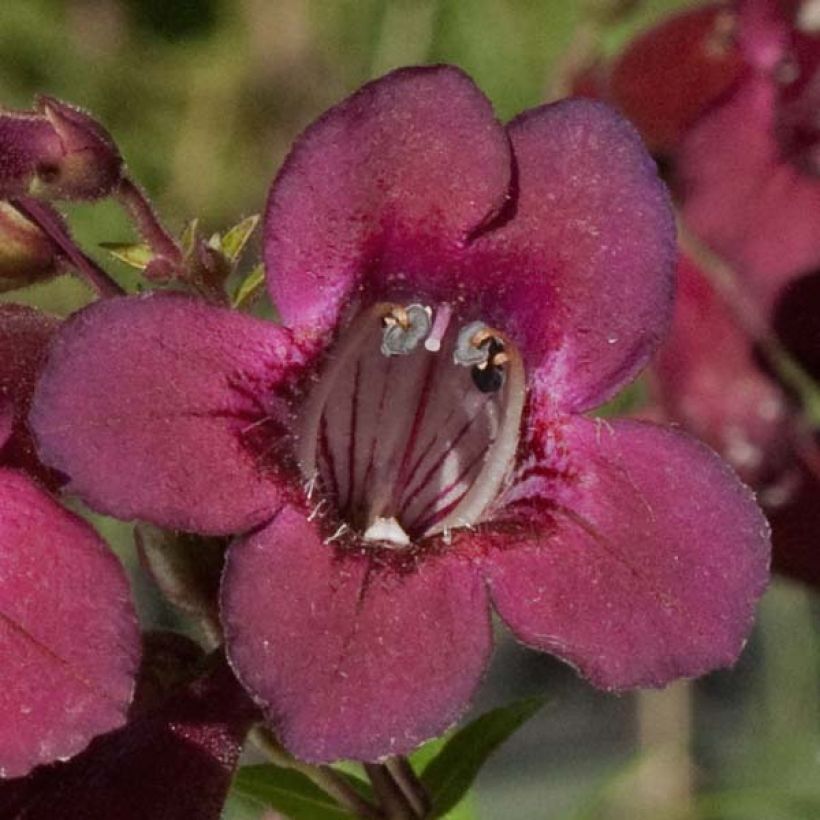

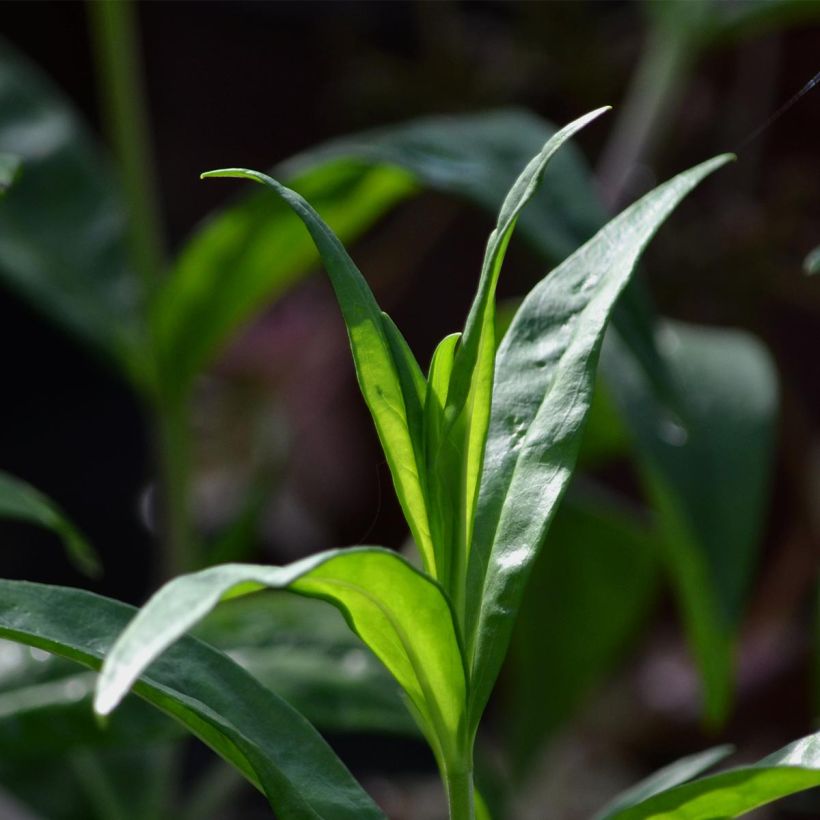

Flowering
Foliage
Plant habit
Botanical data
Penstemon
Blackbird
Scrophulariaceae
Bellflower Beardtongue, Canterbury Bells Penstemon
Cultivar or hybrid
Other Penstemon
Planting and care
To grow Penstemons successfully, you should place them in a sunny spot in colder areas, and a partially shaded and cool spot in hotter areas. These plants grow best in light, rich, well-draining soil that's moist but not too dry. They can tolerate limestone, but slightly acidic soil is also suitable.
Penstemons are easy to take care of and can tolerate winter temperatures as low as -10°C (14°F). To help them survive the winter, don't cut back the Blackbird clump at the end of the season. Its semi-evergreen foliage helps regulate soil moisture. You should also protect the base of the plant with mulch at the beginning of winter. Use a dry mulch, such as a layer of dead leaves, sand, or crushed gravel for better drainage. This will help prevent collar rot caused by excess moisture.
Penstemons should be planted in the spring, and light fertilisation at planting is beneficial. Avoid fertilising afterwards, as it may result in thin and loose stems, making the plant less able to withstand winter.
Penstemons are usually healthy, but they can be vulnerable to powdery mildew, downy mildew, and can be attacked by snails, slugs, and chrysanthemum nematodes.
Planting period
Intended location
Care
-
, onOrder confirmed
Reply from on Promesse de fleurs
Summer flowering perennials
Haven't found what you were looking for?
Hardiness is the lowest winter temperature a plant can endure without suffering serious damage or even dying. However, hardiness is affected by location (a sheltered area, such as a patio), protection (winter cover) and soil type (hardiness is improved by well-drained soil).

Photo Sharing Terms & Conditions
In order to encourage gardeners to interact and share their experiences, Promesse de fleurs offers various media enabling content to be uploaded onto its Site - in particular via the ‘Photo sharing’ module.
The User agrees to refrain from:
- Posting any content that is illegal, prejudicial, insulting, racist, inciteful to hatred, revisionist, contrary to public decency, that infringes on privacy or on the privacy rights of third parties, in particular the publicity rights of persons and goods, intellectual property rights, or the right to privacy.
- Submitting content on behalf of a third party;
- Impersonate the identity of a third party and/or publish any personal information about a third party;
In general, the User undertakes to refrain from any unethical behaviour.
All Content (in particular text, comments, files, images, photos, videos, creative works, etc.), which may be subject to property or intellectual property rights, image or other private rights, shall remain the property of the User, subject to the limited rights granted by the terms of the licence granted by Promesse de fleurs as stated below. Users are at liberty to publish or not to publish such Content on the Site, notably via the ‘Photo Sharing’ facility, and accept that this Content shall be made public and freely accessible, notably on the Internet.
Users further acknowledge, undertake to have ,and guarantee that they hold all necessary rights and permissions to publish such material on the Site, in particular with regard to the legislation in force pertaining to any privacy, property, intellectual property, image, or contractual rights, or rights of any other nature. By publishing such Content on the Site, Users acknowledge accepting full liability as publishers of the Content within the meaning of the law, and grant Promesse de fleurs, free of charge, an inclusive, worldwide licence for the said Content for the entire duration of its publication, including all reproduction, representation, up/downloading, displaying, performing, transmission, and storage rights.
Users also grant permission for their name to be linked to the Content and accept that this link may not always be made available.
By engaging in posting material, Users consent to their Content becoming automatically accessible on the Internet, in particular on other sites and/or blogs and/or web pages of the Promesse de fleurs site, including in particular social pages and the Promesse de fleurs catalogue.
Users may secure the removal of entrusted content free of charge by issuing a simple request via our contact form.
The flowering period indicated on our website applies to countries and regions located in USDA zone 8 (France, the United Kingdom, Ireland, the Netherlands, etc.)
It will vary according to where you live:
- In zones 9 to 10 (Italy, Spain, Greece, etc.), flowering will occur about 2 to 4 weeks earlier.
- In zones 6 to 7 (Germany, Poland, Slovenia, and lower mountainous regions), flowering will be delayed by 2 to 3 weeks.
- In zone 5 (Central Europe, Scandinavia), blooming will be delayed by 3 to 5 weeks.
In temperate climates, pruning of spring-flowering shrubs (forsythia, spireas, etc.) should be done just after flowering.
Pruning of summer-flowering shrubs (Indian Lilac, Perovskia, etc.) can be done in winter or spring.
In cold regions as well as with frost-sensitive plants, avoid pruning too early when severe frosts may still occur.
The planting period indicated on our website applies to countries and regions located in USDA zone 8 (France, United Kingdom, Ireland, Netherlands).
It will vary according to where you live:
- In Mediterranean zones (Marseille, Madrid, Milan, etc.), autumn and winter are the best planting periods.
- In continental zones (Strasbourg, Munich, Vienna, etc.), delay planting by 2 to 3 weeks in spring and bring it forward by 2 to 4 weeks in autumn.
- In mountainous regions (the Alps, Pyrenees, Carpathians, etc.), it is best to plant in late spring (May-June) or late summer (August-September).
The harvesting period indicated on our website applies to countries and regions in USDA zone 8 (France, England, Ireland, the Netherlands).
In colder areas (Scandinavia, Poland, Austria...) fruit and vegetable harvests are likely to be delayed by 3-4 weeks.
In warmer areas (Italy, Spain, Greece, etc.), harvesting will probably take place earlier, depending on weather conditions.
The sowing periods indicated on our website apply to countries and regions within USDA Zone 8 (France, UK, Ireland, Netherlands).
In colder areas (Scandinavia, Poland, Austria...), delay any outdoor sowing by 3-4 weeks, or sow under glass.
In warmer climes (Italy, Spain, Greece, etc.), bring outdoor sowing forward by a few weeks.


































